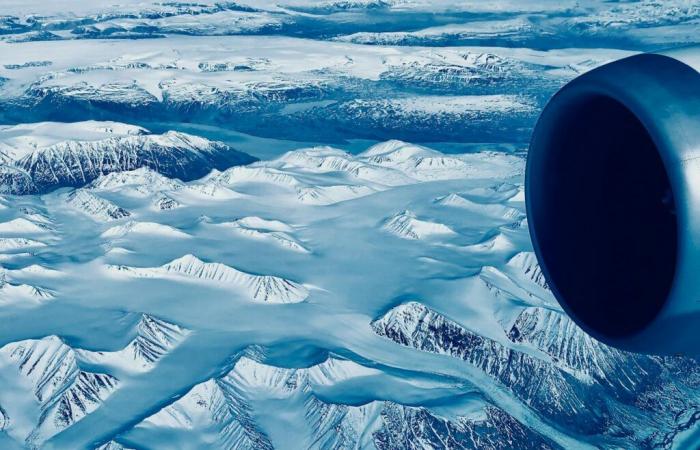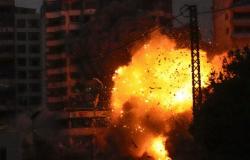In the heart of the icy immensity of Greenland, an unexpected discovery revives memories of the Cold War. A team of NASA researchers, led by Alex Gardner of the Jet Propulsion Laboratory, detected the contours of a real underground citya vestige of a time when the United States strengthened its strategic presence in the Arctic continent.
At that time, the Arctic was a major strategic area and represented a sort of “ front line » between the United States and the Soviet Union. The geographical proximity between the two superpowers in this region, particularly at the Bering Strait, created a very palpable tension. On top of that, both blocs suspected the other of wanting to exploit the Arctic’s abundant natural resources, such as oil and gas. The Cold War therefore changed this continent into a real field of confrontation between the USSR and the USA; a transformation which has left some traces.
The forgotten citadel of the Pentagon
In the midst of the Cold War, while the race for technological supremacy was in full swing between the United States and the USSR, the Pentagon launches a project that defies the imagination. In the expanses of Greenland, the US Army Corps of Engineers began the construction of a huge underground military base in 1959.
Camp Century embodies the pinnacle of American military civil engineering of the time. Faced with extreme weather conditions – temperatures plunging to -57° C and howling winds exceeding 193 km/h – engineers design a real city under the ice.
The complex, capable of accommodating 200 soldiers, includes dormitories, laboratories, a hospital, a chapel, and even a cinema hall, all powered by a portable PM-2A nuclear reactora world first in the Arctic. The project will have cost a total of 8 million dollars, or more than 80 million dollars today.
The construction itself is a true technical feat. The teams drilled tunnels into the ice using a revolutionary technique called “ cut-and-cover », creating a gigantic network of galleries extending over more than 3 km. The structures, designed to withstand the constant crushing of ice, are maintained at a constant temperature thanks to a complex refrigeration system preventing the walls from melting.
Secrets buried under the ice
The abandonment of the site in 1967 did not mark the end of its history. Decades of snow accumulation have gradually buried the base, as well as its 178,000 liters of radioactive waste emanating from its nuclear reactor. The new images, obtained using NASA’s UAVSAR (Uninhabited Aerial Vehicle Synthetic Aperture Radar), reveal this secret city with unprecedented precision. “ New data reveals structures of this secret city like never before », Explains Chad Greene, glaciologist at the JPL laboratory (Jet Propulsion Laboratory) belonging to the American space agency.
The rediscovery of Camp Century goes hand in hand with quite worrying environmental issues. The gradual melting of the Greenland ice sheet could one day expose these installations and their toxic waste, constituting a potential threat to the Arctic ecosystemalready greatly weakened. The effects of contamination could be felt for decades, even centuries, and their management will require international cooperation between the nations concerned: the United States, Denmark and the Arctic countries.
- NASA has rediscovered Camp Century, an underground military base built by the United States under the ice of Greenland during the Cold War.
- This complex was huge, could house 200 soldiers and was powered by a mini nuclear reactor.
- Abandoned in 1967, it contains radioactive waste which could emerge with the melting of the ice.
???? To not miss any news from Presse-citron, follow us on Google News and WhatsApp.






